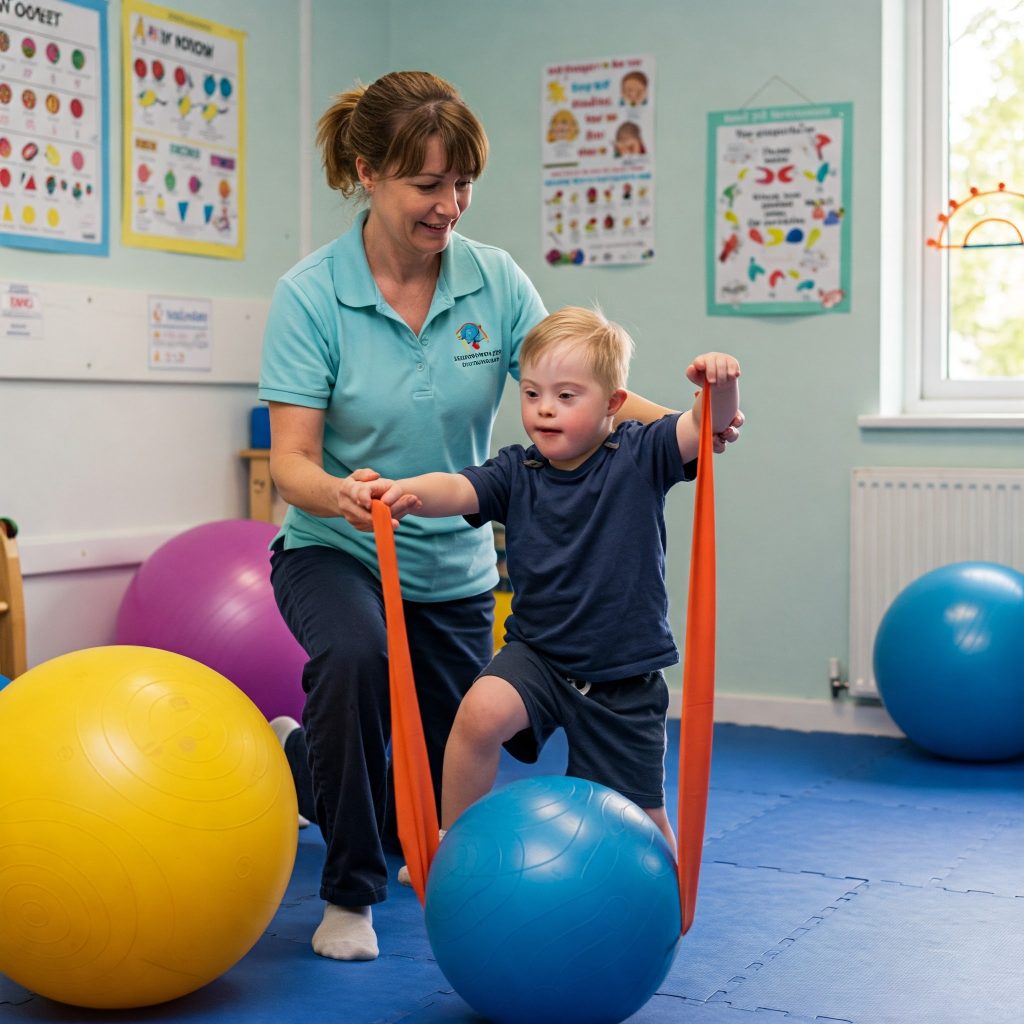Physical therapy plays a crucial role in improving the quality of life for individuals with special needs. Whether a child has cerebral palsy, Down syndrome, autism, or other developmental disabilities, physical therapy helps enhance mobility, improve muscle strength, and promote independence. By using targeted exercises, assistive devices, and individualized treatment plans, physical therapy ensures that individuals with special needs can achieve their full physical potential.
Why Physical Therapy is Essential for Special Needs Care
1. Enhances Mobility and Motor Skills
Many children and adults with special needs experience difficulties with movement, coordination, and balance. Physical therapy provides exercises and techniques that improve motor skills, helping individuals walk, run, or perform daily activities with greater ease.
2. Improves Muscle Strength and Flexibility
Muscle weakness and stiffness can hinder movement and posture. Through guided stretching, resistance training, and functional exercises, physical therapists help strengthen muscles and improve flexibility, allowing for smoother and more controlled movements.
3. Boosts Independence and Daily Functioning
Physical therapy focuses on developing essential life skills such as standing, sitting, and walking. By improving these abilities, individuals with special needs can become more self-sufficient, reducing their reliance on caregivers.
4. Prevents Secondary Health Complications
Without proper movement and activity, individuals with disabilities may develop secondary health issues such as joint deformities, pressure sores, and muscle atrophy. Physical therapy helps prevent these complications by maintaining overall physical health and mobility.
5. Enhances Social Participation
Engaging in physical activities and therapy sessions enables children with special needs to interact with peers, improving their confidence and social skills. Activities like group therapy or adaptive sports create opportunities for meaningful interactions.
Key Physical Therapy Techniques for Special Needs Care
1. Strength and Conditioning Exercises
Physical therapists create personalized programs to enhance muscle strength, endurance, and coordination through structured exercise routines.
2. Stretching and Flexibility Training
Gentle stretching exercises help alleviate muscle stiffness and improve range of motion, allowing for smoother movements.
3. Balance and Coordination Exercises
Many individuals with special needs struggle with balance. Targeted activities like standing exercises, obstacle courses, and stability ball exercises help improve coordination.
4. Gait Training and Mobility Assistance
For children with difficulty walking, therapists use gait training techniques, walkers, and braces to encourage safe and effective movement.
5. Hydrotherapy (Aquatic Therapy)
Water-based exercises are excellent for improving muscle strength, flexibility, and relaxation. The buoyancy of water reduces stress on joints, making movements easier.
6. Sensory Integration Therapy
Some children with special needs have sensory processing issues. Physical therapy incorporates activities that help them better process sensory information, improving their reactions to different environments.
How to Choose the Right Physical Therapist
1. Look for Experience in Special Needs Care
A therapist who specializes in working with children or adults with disabilities will have the expertise needed to create effective treatment plans.
2. Check for Credentials and Certifications
Ensure that the therapist is licensed and has relevant certifications in pediatric or neurological physical therapy.
3. Consider a Multidisciplinary Approach
Physical therapy works best when combined with occupational therapy, speech therapy, and behavioral therapy. Look for therapists who collaborate with other specialists.
4. Seek a Family-Centered Approach
The best physical therapists involve parents and caregivers in the therapy process, offering guidance on exercises that can be done at home.
In Conclusion
Physical therapy is an essential component of special needs care. It enhances mobility, improves strength, boosts independence, and prevents complications, helping individuals lead fulfilling lives. By working with skilled therapists and following a structured program, children and adults with special needs can achieve significant physical and functional progress.

